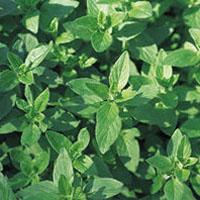Fit and Fast Recipes
Oregano/Wild Marjoram
 © Martin Wall
© Martin WallParts Used & Where Grown
Oregano is an aromatic perennial herb that can grow to about two feet in height. It is native to the Mediterranean region but is cultivated worldwide. In addition to European oregano, there are several types of related species, including Greek/Turkish oregano (Origanum onites) and Mexican oregano (Lippia graveolens, Lippa palmeri). These should not be considered substitutes for true oregano, though they may have similar properties. The leaves as well as the volatile oil of these various species are used medicinally, but must be carefully distinguished as they are quite different.1
- Reliable and relatively consistent scientific data showing a substantial health benefit.
- Contradictory, insufficient, or preliminary studies suggesting a health benefit or minimal health benefit.
- For an herb, supported by traditional use but minimal or no scientific evidence. For a supplement, little scientific support.
Our proprietary “Star-Rating” system was developed to help you easily understand the amount of scientific support behind each supplement in relation to a specific health condition. While there is no way to predict whether a vitamin, mineral, or herb will successfully treat or prevent associated health conditions, our unique ratings tell you how well these supplements are understood by the medical community, and whether studies have found them to be effective for other people.
For over a decade, our team has combed through thousands of research articles published in reputable journals. To help you make educated decisions, and to better understand controversial or confusing supplements, our medical experts have digested the science into these three easy-to-follow ratings. We hope this provides you with a helpful resource to make informed decisions towards your health and well-being.
This supplement has been used in connection with the following health conditions:
| Used for | Amount | Why |
|---|---|---|
Chronic Candidiasis | Refer to label instructions | Volatile oils from oregano have been shown to have significant antifungal action. Doctors recommend enteric-coated capsules, which break down in the intestines instead of the stomach. |
Indigestion, Heartburn, and Low Stomach Acidity | Refer to label instructions | Oregano is a gas-relieving herb that may be helpful in calming an upset stomach. |
Infection | Refer to label instructions | Oregano is an herb that directly attack microbes. |
Yeast Infection | Refer to label instructions | Oil of oregano has been shown to effectively inhibit the growth of Candida albicans. |
Traditional Use (May Not Be Supported by Scientific Studies)
The name Oreganum is the contraction of two Greek words, oros meaning mountain and ganos meaning joy. Together the words suggest the beauty that oregano lends to the fields and hilltops on which it grows.2 Oregano was used extensively by the Greeks for conditions ranging from convulsions to heart failure. Nineteenth-century American Eclectic physicians (doctors who recommended herbal medicines) employed oregano as both a general tonic and to promote menstruation.3
Copyright © 2026 TraceGains, Inc. All rights reserved.
Learn more about TraceGains, the company.
The information presented by TraceGains is for informational purposes only. It is based on scientific studies (human, animal, or in vitro), clinical experience, or traditional usage as cited in each article. The results reported may not necessarily occur in all individuals. Self-treatment is not recommended for life-threatening conditions that require medical treatment under a doctor's care. For many of the conditions discussed, treatment with prescription or over the counter medication is also available. Consult your doctor, practitioner, and/or pharmacist for any health problem and before using any supplements or before making any changes in prescribed medications. Information expires December 2026.








